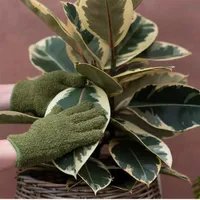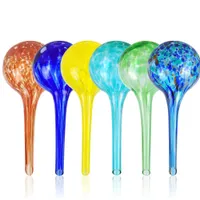How to care for houseplants in winter – 7 tips to keep your leafy friends happy during the cold
Winter doesn't just affect garden plants, the conditions inside our homes change too meaning houseplant care routines need to change

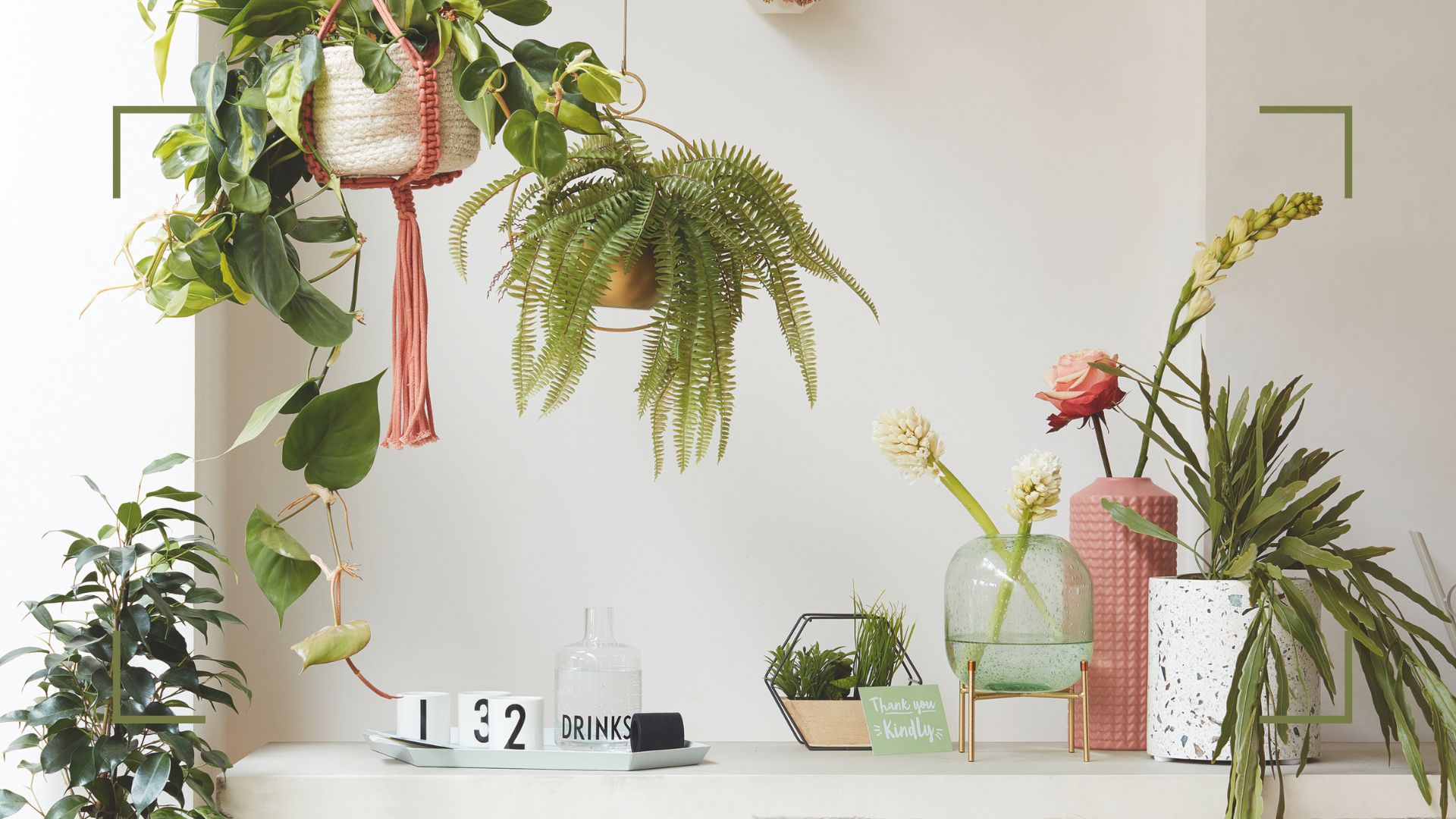
As the weather changes our plants' needs change, even the ones we keep inside. Houseplants, sensitive as they are, require different extra TLC once the colder seasons arrive but don't fear we have asked the experts to explain everything you need to know.
Knowing how to care for indoor plants is sometimes a challenge in itself, it can take what seems like forever just to master your houseplant watering routine. However, to make things slightly more complicated, each plant's needs will change as the seasons do.
So whilst you may have known how to care for a monstera in summer, come winter you may just find yourself at square one again. That's why we reached out to plant experts to give us a foolproof guide for keeping your leafy friends alive and well even when the below-zero temperatures hit.
How to care for houseplants in winter: 7 expert tips
Being a plant parent sometimes feels like an impossible task, when there are more houseplant mistakes to avoid than you can count you'll feel like giving up. But getting to know your plant's needs and keeping up a care routine is a guaranteed way to make them thrive.
Come winter though, it's imperative you adjust this care routine to match the new conditions the plant will be living in.
"A houseplant's physiological needs change with the seasons," says Jane Dobbs, lead gardener at Allan's Gardeners. "Winter can cause a slower metabolism and dormancy, requiring a different care strategy. "

Gardening is Jane's passion, having built and maintained stunning outdoor spaces for over a decade. Managing all the garden projects at Allan's Gardeners is her responsibility as lead gardener. A wide range of horticultural practices come into play in Jane's work, from landscape design to plant and lawn care.
1. Adjust light exposure
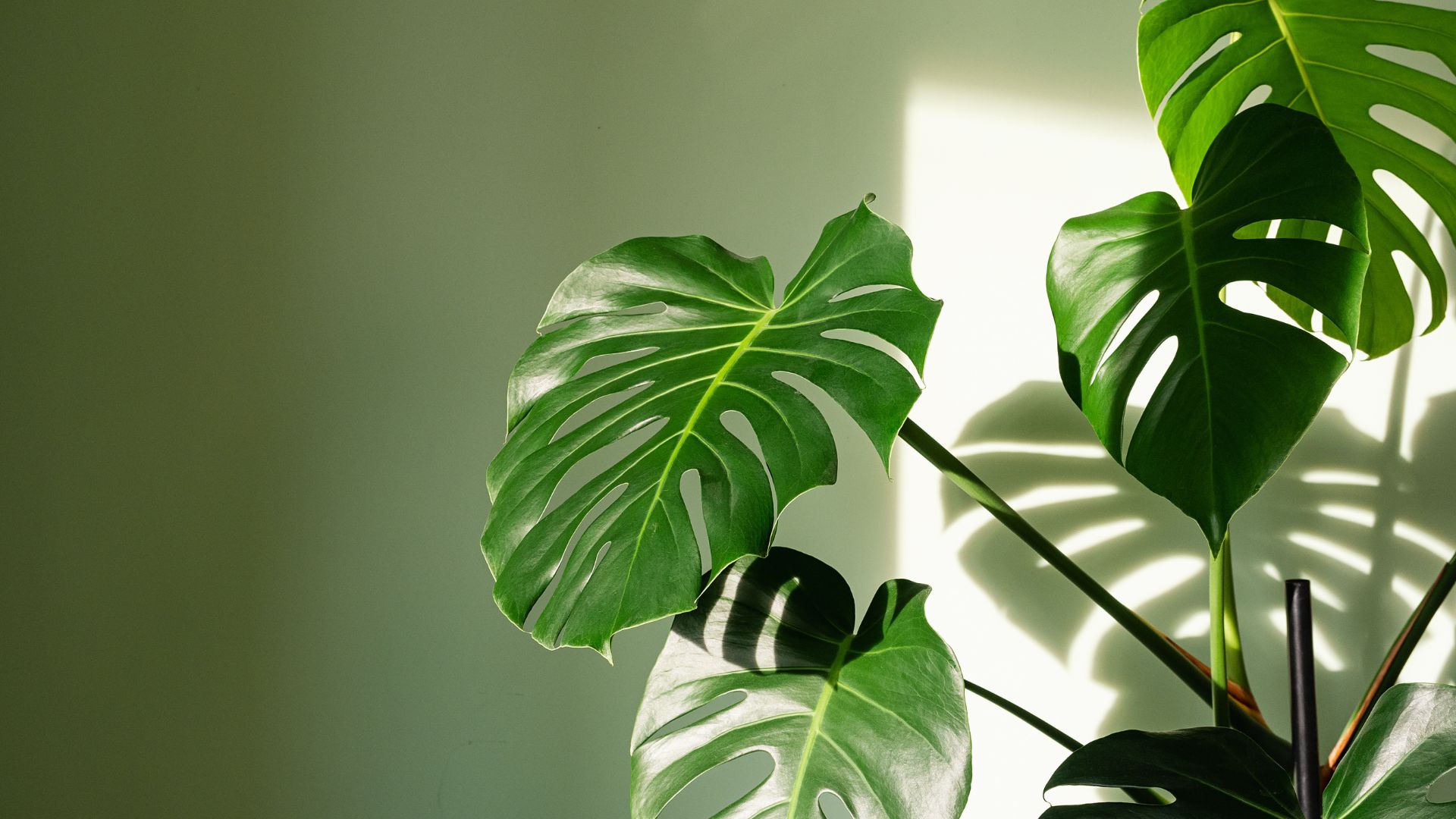
A happy, healthy monstera plant enjoying exposure to sunlight
Through summer too much light can be a tragedy for your plants, it might even be the reason you saw your peace lily's tip turning brown. However, once winter arrives and the constant sunshine disappears you'll want to rethink your plant's placement.
Sign up to our free daily email for the latest royal and entertainment news, interesting opinion, expert advice on styling and beauty trends, and no-nonsense guides to the health and wellness questions you want answered.
"Plants find growing harder in winter because of shorter days and lower light intensity," explains Jane. "You can compensate for the lack of light by moving plants closer to windows or adding grow lights."
She adds, "Succulents and cacti thrive in direct sunlight, so giving them enough light is crucial to preventing etiolation, which makes stems leggy and long."
Even for the easiest houseplants to keep alive, having enough time in the sun is a life-or-death matter. Especially in autumn and winter.
2. Cleaning leaves more frequently
For the same reason you'll need to work a little harder to get your plants some light, knowing how to clean their leaves becomes more important in winter too.
"Concerning light, because there’s lots of it in summer, having a coating of dust over your houseplants’ leaves shouldn’t cause much of a problem. However, the same doesn’t apply to winter when the sunlight is weaker," says Petar Ivanov, a gardening expert at Fantastic Gardeners.
He explains that because of the weaker sun you'll need to clean your plant's leaves more frequently or the dust build-up will cause them health issues.
Houseplant dust remover gloves, £3.99 at Waitrose
These clever gloves make cleaning plant leaves easy. They allow you to do the job with a soft but thoroughness that you might not get from using a cloth.

Peter has been a gardening and plant expert at Fantastic Gardeners for over 8 years, he is now one of the company's top-performing experts and manages over 6 teams of gardeners. He works on creating stunning landscapes and prioritises sustainability in his gardening methods.
3. Keep away from radiators
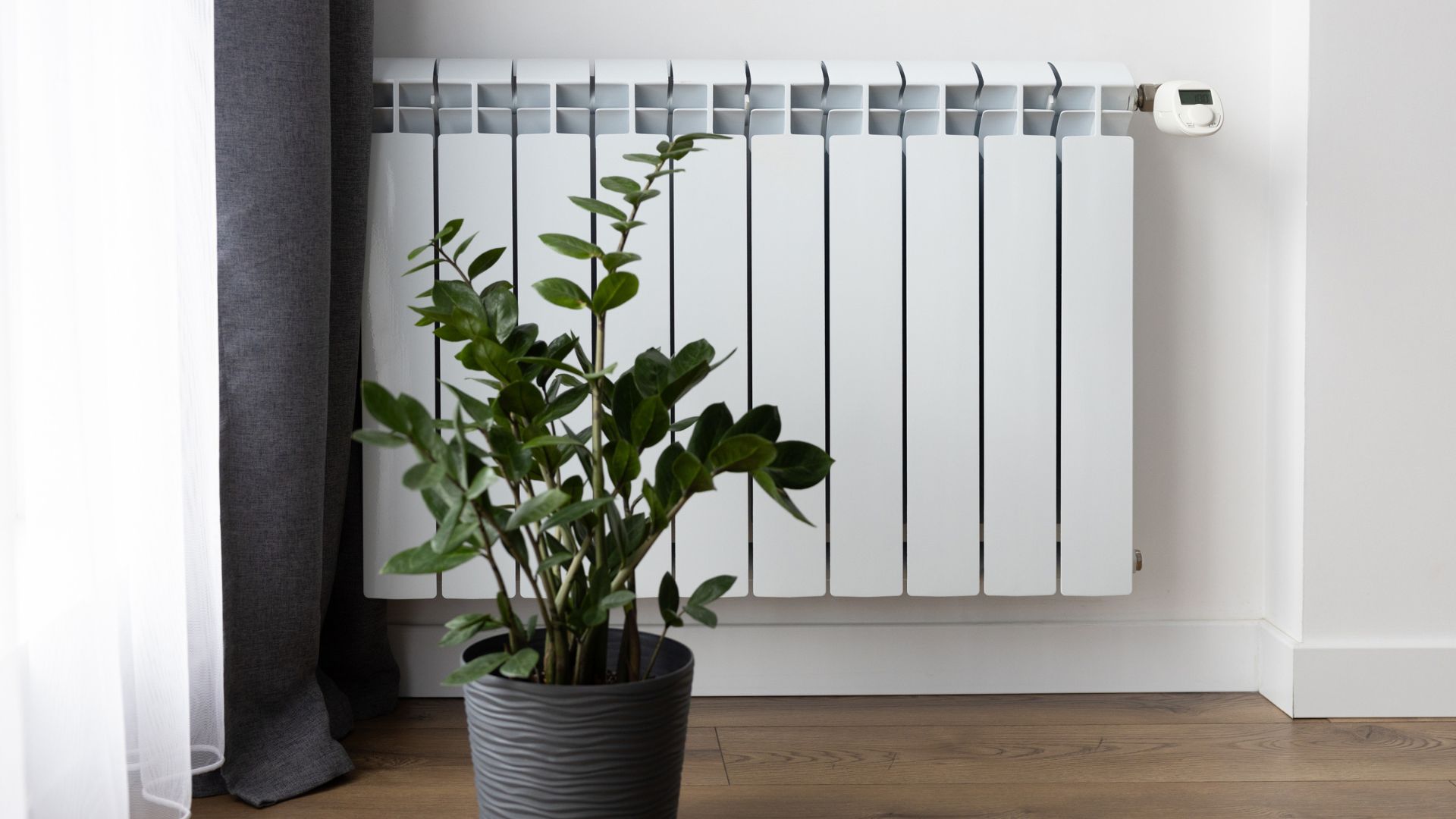
You'll want to try every expert tip for saving energy in your home during winter and keeping your radiators clear is important for better heat output. Aside from energy saving, your plants will be glad about the distance from the heat.
"Houseplants thrive best when they are kept at a consistent temperature," explains Graham MCIhort, horticulture expert at LBS Horticulture.
"They should be placed away from draughty areas where they can be exposed to cold winds, or too close to radiators and other heat sources that can make them dry out quicker."

Graham has extensive knowledge in the horticultural and gardening industries, and prides himself on using this to help gardeners of all skills create their perfect outdoor space.
4. Reduce watering routines
Perfecting your houseplant watering routine is no walk in the park, not when you have to wonder about how often you should water succulents as well as orchids. One advantage to winter houseplant care is that plants won't require as much water, so you can take it easy for a few months.
Jane explains, "Plants typically need more water during summer because the soil dries out faster. Due to cooler temperatures, winter soil stays moist longer, so you have to water less. Before re-watering in winter, make sure the top few centimetres of soil dry out."
Always check the soil before watering especially when you're still getting used to the new routine, you don't want to waterlog your plants and cause root rot.
AMFUN Plant Watering Globes Stakes, £14.99 for 6 at Amazon
These attractive hand-blown colourful glass watering devices are an easy way to employ a self-watering feeding system for your indoor potted plants.
5. Avoid repotting
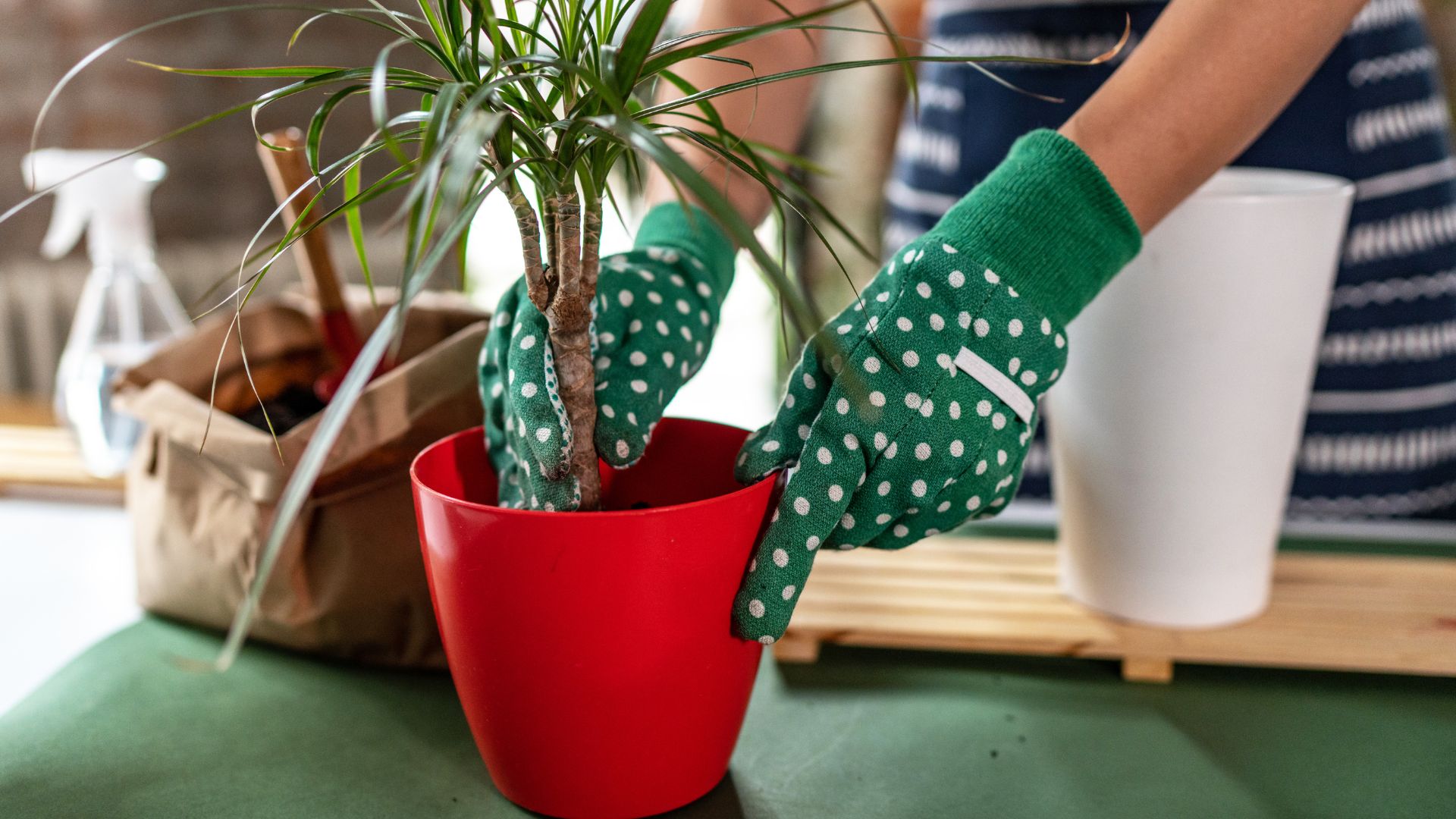
Even if you know when to repot your houseplants and the timing falls over winter, resist the urge to do so. Repotting your plant during the colder seasons is a huge no-no and can cause the plant a lot of damage.
"Never repot your houseplant during winter," warns Petar. "The ideal time to repot plants is in spring and autumn only. An additional tip is to not stop feeding your houseplants with fertiliser."
"If you continue to feed them lightly every time you water them, it shouldn’t cause any problems and it’ll even be beneficial. It won’t overwhelm them and interfere with their dormancy because you’ll generally be watering them less frequently during this period of the year," he finishes.
6. Check for pests with more frequency
If you've allowed some of your houseplants to enjoy the outdoors in the summer sun you're probably ready to bring them in soon. To avoid getting rid of spiders and welcoming other uninvited creepy crawly guests we'd suggest you flood your plants.
Alongside this Petar advises you to keep them separate from the plants that stayed indoors. He says, "Keep in mind that when you create the ideal winter environment for your houseplants, it’ll also be the ideal environment for bugs."
"It’ll be best if you keep them separately for around four weeks, which is the shortest period for the lifecycle of most pests. I prefer to keep mine separate. At the same time, keep inspecting your indoor plants for pests as you would during the summer," adds Petar.
7. Feed less frequently
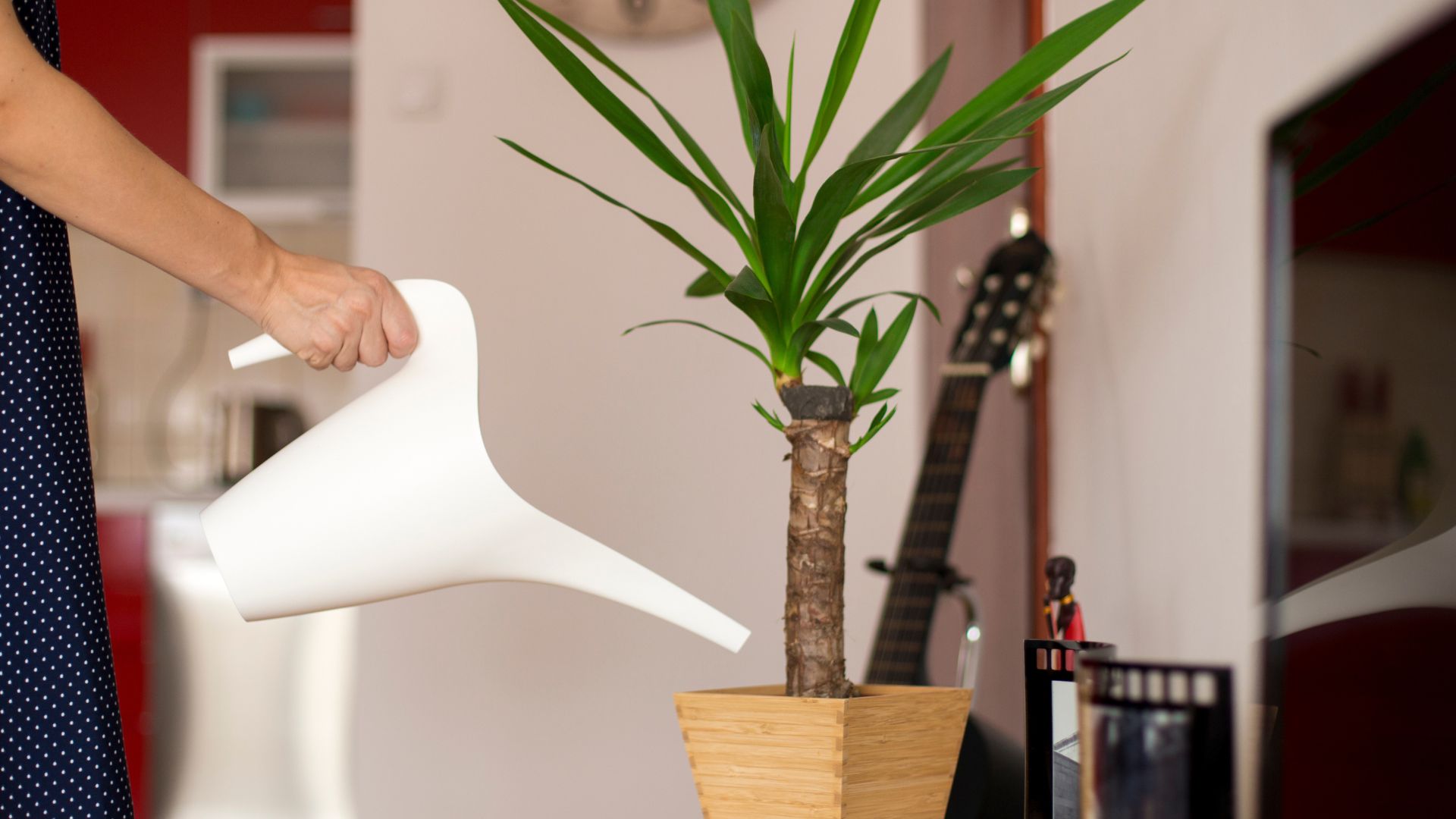
Whilst you might often forget to feed your houseplants, just like the watering routine the amount of food your plants need will change with the seasons.
"In the winter, most houseplants go dormant, slowing their growth and nutrient uptake. Overfeeding during this period can cause nutrient burn. Using less fertiliser or even pausing it until spring keeps plants from going into stress," explains Jane.
To avoid this affecting your plants, Jane recommends using a diluted solution of plant food during winter to fertilise.
Baby Bio Houseplant Food: £1.99 at Amazon
Feed your Monstera with this cult classic plant food, also Amazon's Choice buy. The trusted fertiliser is made to help grow vibrant and healthy indoor plants to provide the right nutrients.
FAQs
Do you need to water your houseplants less over winter?
If you know how to water your garden plants properly then you'll know that during winter you really won't need to get out there with your watering can. The same applies to your indoor plants too.
"You will need to water your houseplants during winter, but, in comparison to summer, that would be a lot less frequent," Petar explains. "During winter, overwatering can be a death sentence for your houseplants."
He goes on to say that whilst your plants can look thirsty with dry and crispy leaves, this doesn't necessarily mean they need watering.
"Before you water your houseplants, always check the soil first. Reach down as deep and close to the roots as possible. To make this task easier, consider investing in a soil tester with which you can check moisture at the root level. If your houseplant has dry and crispy leaves but the surface of the soil is dry while the rest of the soil is wet, this is your plant telling you the humidity is too low," Petar adds.
When it comes to a general rule, he advises that you water your thirstiest plants around every two to three weeks and more drought-loving species once every three to four weeks. Just make sure that your pots are fully draining and there's no risk of soggy soil.
One thing the experts all highlight is that it's extremely important to avoid large fluctuations in temperature. Your plants won't react well to extreme heat or cold, especially if they're constantly going from one to the other.

Emily joined woman&home as a staff writer after finishing her MA in Magazine Journalism from City University in 2023. After writing various health and news content, she now specialises in lifestyle, covering unique cleaning hacks, gardening how-tos, and everything to help your houseplants thrive.
